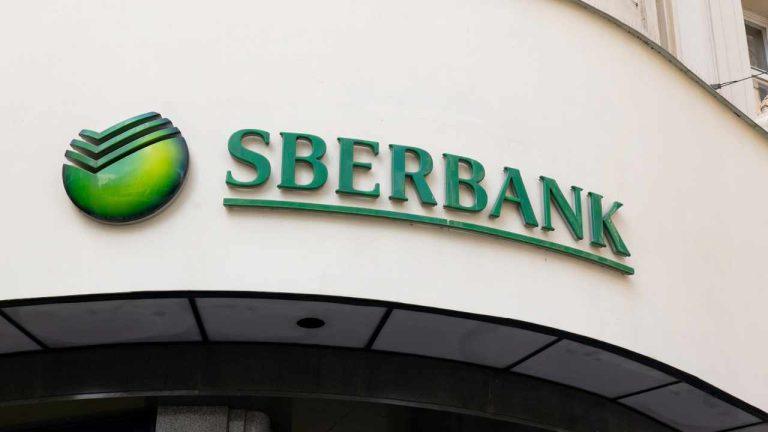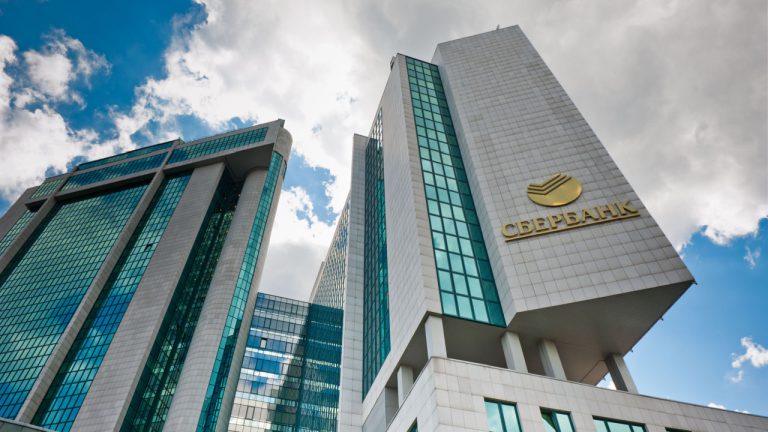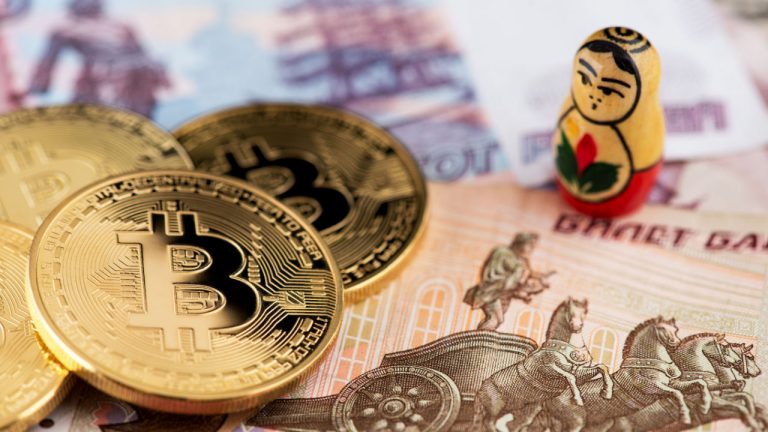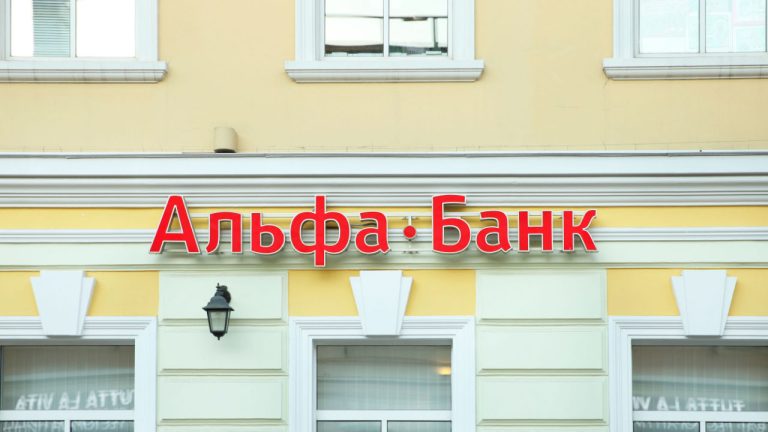 Sberbank, Russia’s largest financial institution, plans to join a cryptocurrency settlement pilot program this fall. The bank also aims to serve clients using digital rubles by 2025. Deputy Chairman Anatoly Popov supports regulatory efforts to legitimize cryptocurrencies for international payments and mining. He highlighted cryptocurrencies as effective payment methods, especially for small businesses, amid global […]
Sberbank, Russia’s largest financial institution, plans to join a cryptocurrency settlement pilot program this fall. The bank also aims to serve clients using digital rubles by 2025. Deputy Chairman Anatoly Popov supports regulatory efforts to legitimize cryptocurrencies for international payments and mining. He highlighted cryptocurrencies as effective payment methods, especially for small businesses, amid global […] Platforms authorized by the Russian government issued digital assets worth around a billion rubles in April, the local press reported. The spike in the volume has been attributed to Russian companies experimenting with new financial instruments amid limited access to traditional capital. Russia’s Digital Assets Market Livens Up as Capital Markets Dry Up for Russian […]
Platforms authorized by the Russian government issued digital assets worth around a billion rubles in April, the local press reported. The spike in the volume has been attributed to Russian companies experimenting with new financial instruments amid limited access to traditional capital. Russia’s Digital Assets Market Livens Up as Capital Markets Dry Up for Russian […] Blockchain technology can help solve current issues with settlements, according to the deputy chief executive of Sberbank. Russia’s largest bank is working with other financial institutions to develop blockchain-based payment applications, the banker revealed. Sberbank Sees Solution to Russia’s Troubles With Settlements in Blockchain With major Russian banks disconnected from the main global interbank payment […]
Blockchain technology can help solve current issues with settlements, according to the deputy chief executive of Sberbank. Russia’s largest bank is working with other financial institutions to develop blockchain-based payment applications, the banker revealed. Sberbank Sees Solution to Russia’s Troubles With Settlements in Blockchain With major Russian banks disconnected from the main global interbank payment […]
There is no technical reason preventing Russia from creating its own blockchain-based system, blockchain provider Fuse Network’s CEO believes.
The adoption of blockchain is the right direction for Russia to solve its current settlement issues, according to an executive at Russia’s largest bank, Sberbank.
Blockchain technology has matured over the past few years to offer new capabilities that potentially enable Russia to create more efficient payment systems, Sberbank first deputy chairman Alexander Vedyakhin said.
On March 14, Vedyakhin took part in the meeting of Russia’s Federation Council on the budget and financial markets committee, highlighting the promising future of blockchain in Russia, the local news agency Interfax reported.
According to Vedyakhin, distributed ledger technology (DLT) is a great foundation for a new payment system due to its decentralized nature and privacy-enabling features. He stated:
“Because it’s a distributed ledger, there is no single point of decision-making, no center, no switch that can be turned off; everyone has records of everything, and there are special protocols that allow you to do this confidentially.”
Vedyakhin added that Sberbank is currently actively exploring the implementation of blockchain technology for payments. “We are confident that Sberbank and other colleagues from the central bank will find this solution,” he stated, expressing confidence that blockchain will become more relevant in 2023. The Sberbank executive said:
“Next-generation payment systems will be on blockchain.”
In his speech, Vedyakhin also noted that blockchain technology has rapidly evolved over the past few years, with developers managing to find solutions to issues, such limited scalability and limited privacy. These blockchain issues have been solved so far, he added.
According to Mark Smargon, CEO of the permissionless public ledger project Fuse Network, there is no technical reason preventing Russia from creating its own blockchain-based system.
“Major adoption by mainstream businesses and their consumers is right around the corner thanks to recent developments in scaling and privacy technology, notably on EVM [Ethereum Virtual Machine]-compatible systems, which have become the standard for experimentation,” Smargon said in a statement to Cointelegraph.
Related: Russian crypto advocates urge Putin to stop regulatory hostility
He noted that fully online real-time technology for cross-border payment settlement is “only a matter of time,” with technology significantly maturing over the past few years. At the same time, Smargon questioned whether blockchain could enable economies to bypass international sanctions, stating:
“It needs to be clarified when this technology will become widely adopted and whether it will enable users to bypass international sanctions. Blockchain enables better transparency, and disintermediation is not only a solution for illicit activities.”
The news comes amid Sberbank finalizing its Ethereum-based decentralized finance platform, which it plans to trial by May 2023. Russia’s largest bank has also been working on an international settlement platform that would serve as an alternative to SWIFT. According to Sberbank CEO German Gref, the company plans to finalize its configuration in 2023.
 Major crypto exchanges have failed to prevent sanctioned Russian banks and traders from transacting, according to a blockchain forensics report. At least two established coin trading platforms continue to allow Russians to use their bank cards in peer-to-peer deals, the analysis shows. It also highlights an increased Russian interest in tether. Russian Traders Still Using […]
Major crypto exchanges have failed to prevent sanctioned Russian banks and traders from transacting, according to a blockchain forensics report. At least two established coin trading platforms continue to allow Russians to use their bank cards in peer-to-peer deals, the analysis shows. It also highlights an increased Russian interest in tether. Russian Traders Still Using […] Alfa-Bank, one of the major Russian banking institutions, has established its own platform for digital financial assets. The launch became possible after Russia’s monetary authority added Alfa-Bank to its register of digital asset issuers this week. Privately-Owned Alfa-Bank Sets Up Digital Asset Platform With Central Bank’s Permission Russia’s Alfa-Bank has launched ‘A-Token,’ a platform allowing […]
Alfa-Bank, one of the major Russian banking institutions, has established its own platform for digital financial assets. The launch became possible after Russia’s monetary authority added Alfa-Bank to its register of digital asset issuers this week. Privately-Owned Alfa-Bank Sets Up Digital Asset Platform With Central Bank’s Permission Russia’s Alfa-Bank has launched ‘A-Token,’ a platform allowing […]
DeFi systems are able to displace the traditional market of banking services, Sber’s Blockchain Lab product director Konstantin Klimenko said.
Russia’s largest bank, Sberbank, is moving forward with the plan to launch its decentralized finance (DeFi) platform, preparing to trial the product in a few months.
Sberbank expects to launch open trials of its DeFi platform by May 2023, Sber’s Blockchain Lab product director Konstantin Klimenko announced, the local news agency Interfax reported on Feb. 3.
Currently being tested in private beta, Sberbank’s upcoming DeFi platform will be fully open by the end of April, enabling users to conduct the first commercial transactions, Klimenko said.
The executive noted that the blockchain platform will be compatible with the Ethereum blockchain, allowing customers to use major wallets, such as MetaMask, to move their assets. Klimenko also noted that users will be able to transfer their assets from other platforms.
The blockchain executive stated that Sberbank’s DeFi platform aims to become a prime DeFi ecosystem in Russia. He also expressed confidence that DeFi systems are able to displace the traditional market of banking services.
The announcement comes in line with Sberbank’s previously disclosed plans to enable DeFi applications on the bank’s infrastructure. In November 2022, Sberbank announced a set of new features for its proprietary blockchain platform, including compatibility with smart contracts and applications on the Ethereum network.
It appears to be unclear how the upcoming platform is going to be regulated because Russia is yet to come up with digital currency regulation. According to Anatoly Aksakov, the head of the Duma’s Committee on Financial Market, Russia will “definitely” adopt crypto regulations in 2023.
Related: Iran and Russia want to issue new stablecoin backed by gold
As previously reported, Sberbank was struggling to launch some blockchain tools over the past few years due to multiple delays of registration by the Russian central bank. Originally expecting to launch its digital asset issuance platform in 2021, Sberbank eventually received the Bank of Russia’s approval in spring 2022. The Russian government is the majority shareholder in Sberbank, holding 50% + 1 share.
On Feb. 2, Alfa Bank, one of the largest private banks in Russia, became the fourth financial institution in the country allowed to issue digital assets alongside Sberbank, the state-backed tokenization platform Atomyze and fintech company Lighthouse.
 During the last month, Russia’s ruble has dropped 16.48% against the U.S. dollar as energy and commodity prices have slowed over the last few weeks. Russia’s central bank revealed two weeks ago that it is further distancing itself from U.S. dollar dependence by purchasing the Chinese yuan on foreign exchange markets. Roughly around the same […]
During the last month, Russia’s ruble has dropped 16.48% against the U.S. dollar as energy and commodity prices have slowed over the last few weeks. Russia’s central bank revealed two weeks ago that it is further distancing itself from U.S. dollar dependence by purchasing the Chinese yuan on foreign exchange markets. Roughly around the same […]
The issuance became the second major operations of the bank with the new class of assets.
Russia’s largest bank Sber — formerly known as Sberbank — reported the first issue of gold-backed digital financial assets (DFAs). The bank considers DFAs to be a “great alternative” to investments amid dedollarization.
On Dec. 26, Sber published the news about its first issue of gold-backed DFAs. A diversified metals seller and manufacturer, Solfer, became the first investor to obtain the issued assets. Gold-backed DFAs represent certifying monetary rights, whose price and volume depend on gold prices.
According to juridical documentation of the issuance, the bank will provide up to 150,000 DFAs for potential investors to buy. The DFAs will be available to acquire until Jul 30, 2023. The document mentions “the high risks” for investors, ingrained in such kind of assets, including “the risk of illiquidity.”
The first deputy chairman of the Executive Board at Sber, Alexander Vedyakhin, claims these kind of DFAs to be an alternative to traditional investments amid the dedollarization, caused by the international financial sanctions, imposed on Russia in the aftermath of its invasion to Ukraine:
“We expect the number of corporate clients on our platform to grow rapidly and plan to expand the product line of digital financial assets.”
While current legislation on the DFA was put in force in 2020, in July 2022 Russian President Vladimir Putin has signed a bill into law prohibiting digital financial assets as payments method.
Related: Russia's Sber bank integrates Metamask into its blockchain platform
In June, a subsidiary of another Russia’s state-owned bank, VTB Factoring, reported its first major deal with digital finance assets. As part of the deal, the bank subsidiary acquired a tokenized debt pool of the engineering company Metrowagonmash, issued via the fintech platform Lighthouse. Sber has tested its first deal involving DFAs later in July, issuing the three-month assets valued 1 billion roubles (around $14.5 millions by press time).